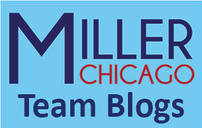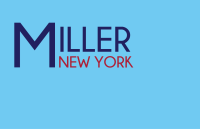As a commercial broker who specializes in retail leasing, I often am asked “what does NNN (triple-Net) mean” or “what is the difference between Modified Gross and NNN Leases” so I have decided to put together a quick summary of the different types of leases.
One important thing to note before starting. It can often be frustrating for commercial real estate tenants because even though there are some common definitions, all landlords have different definitions of exactly what costs are included in certain cases*, so it is still smart to clarify before entering into negotiations. However, the definitions are standard enough that you can use this framework to compare apples to apples while performing your preliminary search.
NNN – this is most common for retail leases. Commercial landlords often pass the building expenses on to the tenants. These “extras” include the 3 net charges: property taxes, building insurance, and CAM (common area maintenance). These are billed on a pro-rata basis according to the tenant’s sq footage vs total building size. ie- if a tenant occupies 10,000 sq ft or 10% of a 100,000 sq ft shopping center, and the total annual cost for property taxes, building insurance, and CAM is $50,000 / year, then with a NNN lease, the tenant would be responsible for $5,000 / year or $5 / sq ft of “extras” in addition to the “base rent”. The party at risk if “extras” increase is the Tenant in this type of lease.
Full Service – this is an uncommon lease type for commercial but because LoopNet has an option for it (and I do occasionally see it) I will include it. Full service means as it sounds – “everything” is included. ie – rent includes some utilities that may usually be considered a tenant’s responsibility (such as heat and a/c, trash service, cleaning). This is more common in office leasing than retail or industrial. The party at risk if “extras” increase is the landlord in this type of lease.
Gross – a gross lease includes all building expenses except utilities. A good example of a gross lease is a residential apartment lease. The party at risk if “extras” increase is the landlord in this type of lease.
Modified Gross – I see this type of lease similar to a NNN lease (the party at risk if “extras” increase is the tenant in this type of lease.) – but I like this type of lease as it can easier to understand. In this type of lease, the base rent INCLUDES the first year “base year” of property taxes, building insurance, and CAM. Tenant then is only responsible for the increases year over year. Therefore, using the same example as above, if total extras increase 10% to $55,000 annually, the tenant would pay an additional cost of $500/ year in year 2. The party at risk if “extras” increase is the Tenant in this type of lease.
Therefore, from an economic perspective – I see the main difference as “party at risk”. In a NNN and mod gross lease, the party at risk if “extras” increase is the Tenant. With a Gross or Full Service lease, the party at risk if “extras” increase is the Landlord. The other differences can be equated using basic math.
Definitions for review:
Extras: property taxes, building insurance, and CAM (common area maintenance).
CAM: common area maintenance – costs to maintain the common grounds in a building or shopping center – ie – snow removal, parking lot cleaning / maintenance, lighting bill for parking lot lights or hallway lights, water bill (if water not separately metered), any other utilities not separately metered.
Base year – typically the first year of a lease, upon which a modified gross lease is based on to calculate tenant’s responsibility share (consisting only of the increases in “extras” over time: current year extras – base year extras”
Pass-Throughs: expenses / extra costs that are the responsibility of the Tenant. They are called “pass throughs” because is is an objective amount- the cost passed through to tenant is the exact cost incurred by property / landlord.
Additional rent – includes all extras payable by tenant and any other pass-throughs that are tenant’s responsibility (sometimes can also include certain utilities as discussed above)
Post below or email us at miller@millerchicagorealestate.com
Test your understanding:
1) true or false : the increase in total rent plus extras payable by tenant between years 1 and 2 is the same for a NNN lease and a Mod Gross lease
2) true or false : the increase in total rent plus extras payable by tenant between years 1 and 2 is the same for a Mod Gross and a Gross lease lease
3) the total rent plus extras due by tenant for year 1 for a $20/ sq ft NNN lease with $5/ sq ft extras is the same as for a $25/ sq ft mod gross lease
4) The party at risk if “extras” increase with a NNN lease is the:
5) the party responsible for year 1 “extras” in a modified gross lease is:
1) true
2) false
3) true
4) Tenant
5) landlord
*differences can be due to: 1) landlord preference 2) ability or inability to pass through certain expenses due to utilities being separately metered or expenses being separately billed (some larger buildings trash collection is centralized and in others each tenant obtains their own commercial trash collection contract ) or not 3) negotiated -ie landlords may include certain nominal costs (trash, water, others) as a benefit to Tenants
I hope you enjoyed this article and it helped simplify this concept for you!
Questions / comments / suggestions? Post below or email us at miller@millerchicagorealestate.com






